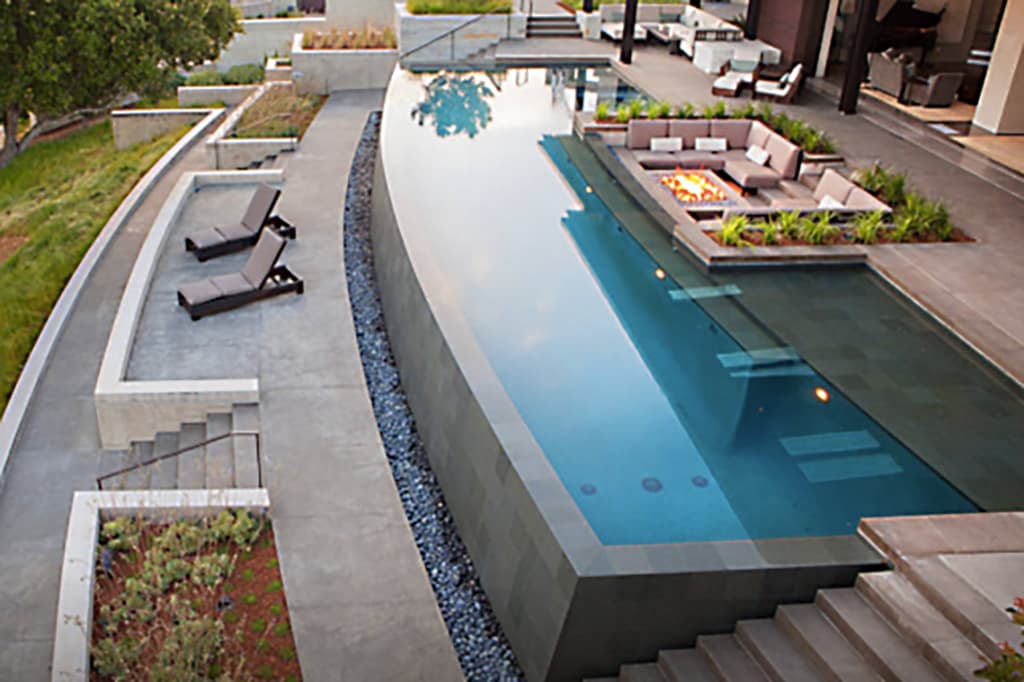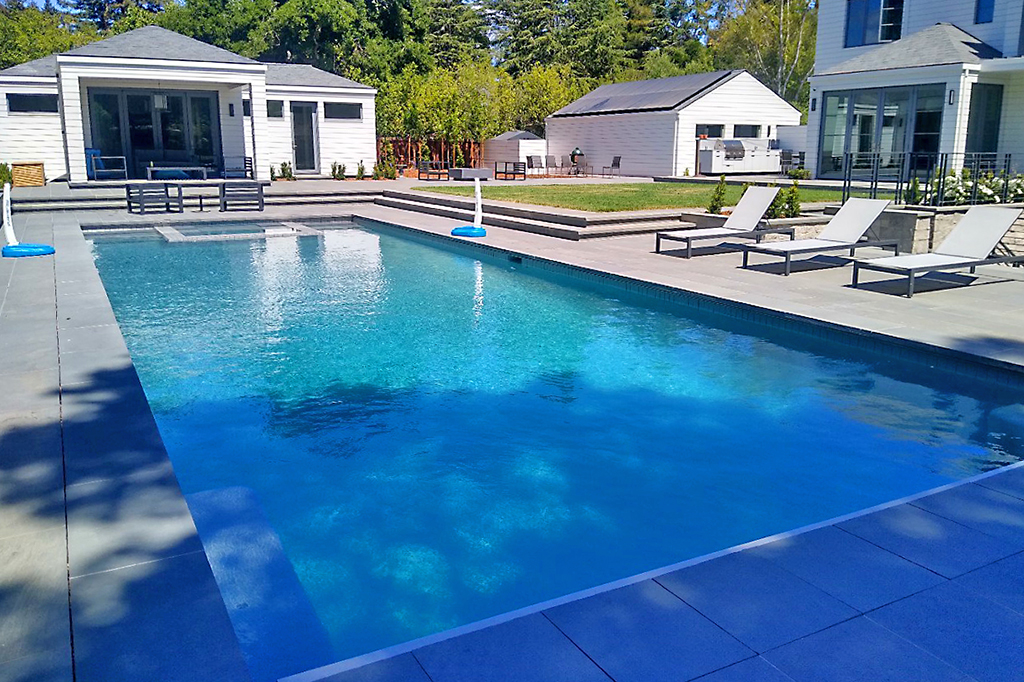When it pertains to keeping the visual and practical appeal of your swimming pool, resurfacing is a vital procedure that can not be ignored. Whether you're thinking about swimming pool remodelling, pool improvement, or simply wanting to breathe new life into an existing structure, understanding various kinds of resurfacing products for pools is crucial. This extensive guide explores numerous choices readily available for pool surfaces, ensuring you make an informed choice customized to your specific needs.
What is Pool Resurfacing?
Pool resurfacing involves the application of brand-new product on the existing surface of the swimming pool to restore its look and functionality. Gradually, aspects such as weather conditions, chemical direct exposure, and everyday usage can cause use and tear. Resurfacing not only rejuvenates your pool but likewise extends its lifespan.
Why Consider Pool Resurfacing?
There are numerous reasons why property owners may consider resurfacing their swimming pools:

- Aesthetic Appeal: A fresh coat can considerably enhance the appearance of your swimming area. Structural Integrity: Cracks or rough surfaces can jeopardize security; resurfacing addresses these issues. Improved Functionality: New products can supply better grip and lower algae growth. Increased Property Value: A clean swimming pool contributes favorably to overall property value.
Understanding Different Types of Resurfacing Materials for Pools
Choosing the right resurfacing material is pivotal in achieving the wanted results. Let's dive deeper into numerous kinds of materials commonly used in pool resurfacing.
1. Plaster Finishes
Plaster is among the most traditional products for pool resurfacing. It's composed generally of cement mixed with water and sand, offering a smooth finish.
Advantages of Plaster Finishes
- Cost-effective Smooth texture Easy application
Disadvantages
- Prone to staining Requires regular upkeep Less long lasting than other options
2. Pebble Tec ®
Pebble Tec ® is a popular option among house owners looking for a more natural look. This material includes little pebbles embedded in plaster.
Advantages
- Attractive appearance Durable and long-lasting Offers a non-slip surface
Disadvantages
- Higher initial expense May need special cleaning tools
3. Aggregate Surfaces
Aggregate surfaces are made by mixing plaster with different aggregates like quartz or glass beads.
Advantages
- Extremely durable Variety in color choices Low maintenance
Disadvantages
- More pricey than traditional plaster Installation can be labor-intensive
4. Vinyl Liner Pools
Vinyl liners are another choice that can offer your pool a fresh look without completely draining it.
Advantages
- Quick installation process Soft feel against skin Wide range of patterns and colors available
Disadvantages
- Limited life-span(usually 5-- ten years) Susceptible to tears or punctures
5. Concrete Resurfacing
Concrete resurfacing offers a robust service for commercial swimming pools needing renovation.
Advantages
- Highly customizable designs Suitable for heavy-use environments Long-lasting sturdiness
Disadvantages
- Requires professional setup Can end up being slippery when wet
6. Tile Installation
Tile installation includes utilizing ceramic or glass tiles around the boundary or throughout the whole swimming pool surface.
Advantages
- Luxurious look Resistant to discolorations and chemicals Easy upkeep
Disadvantages
adamspools.com pool coping replacement- Higher cost compared to other materials Professional installation needed
7. Epoxy Coatings
Epoxy coverings are acquiring popularity due to their toughness and resistance to severe chemicals.
Advantages
- Excellent chemical resistance Long-lasting finish Waterproof properties
Disadvantages
- Preparation time can be substantial Requires expert application
Factors Affecting Your Option of Resurfacing Material
When selecting a resurfacing product for your swimming pool, think about numerous factors:
1. Budget plan Constraints
How much are you ready to invest? Some materials might use lower upfront expenses however might require more regular upkeep down the line.
2. Swimming Pool Usage Frequency
For commercial pools or those utilized often by households, you'll want a durable material that endures heavy use.
3. Desired Aesthetic Appeal
What look are you intending to achieve? Natural stone finishes might appeal more than standard plaster if you're aiming for luxury.
Commercial Pool Resurfacing vs Residential Swimming Pool Renovation
Understanding whether you're focused on industrial pool construction pool renovation or residential renovations will influence your option in products significantly.
1. Business Pool Resurfacing Needs
Commercial pools typically have higher traffic levels needing more robust solutions like aggregate finishes or epoxy coatings that withstand rigorous usage and extreme chemicals from public swimming sessions.
2. Residential Swimming Pool Remodelling Goals
Homeowners might concentrate on aesthetic appeal alongside performance-- alternatives like Pebble Tec ® or tile setups might be perfect for developing an inviting environment for family gatherings while being less susceptible to wear over time than other surfaces may be under consistent examination from active children!
Pool Coping Replacement: The Structure of Your Surface Finish
Coping describes the capstone around your swimming pool's edge that plays an essential role in both aesthetic appeals and structural integrity.
Why You Must Consider Coping Replacement Throughout Resurfacing Projects?
When undertaking any significant restoration-- be it replastering or entirely new surface area finishing-- you must assess whether existing coping satisfies present security requirements while matching picked style elements effectively!
Exploring Swimming pool Fracture Repair work Techniques Before Resurfacing Begins!
Before dedicating yourself fully into selecting surfacings such as vinyl liners versus concrete aggregates; addressing pre-existing concerns such as cracks must take priority!
Common Break Repair Approaches Include:
Epoxy injections Polyurethane foams Hydraulic cement repairsEach approach has its pros/cons depending upon severity, so talking to experts makes sure reliable resolution before continuing further!
Considerations For HOA Swimming pool Renovation Projects!
Homeowner Associations often have particular standards relating towards maintaining community amenities such as shared leisure centers consisting of pools!
Key Guidelines To Bear in mind Include:
1) Adhering strictly compliance policies regarding products usage
2) Financial restraints set forth by associations
3) Timeline expectations affecting general job conclusion
By keeping these points front-of-mind during remodellings ensures smoother procedures which align with neighborhood standards!
FAQs About Pool Resurfacing Materials!
Here we answer some frequently asked concerns relating to various types available:
1) How Typically Need To I Think About Pool Resurfacing?
Typically every 10-- 15 years depending on environmental conditions affecting surface area deterioration rates!
2) What's One Of The Most Affordable Choice For Homeowners?
Traditional plaster remains one affordable choice; however investing somewhat more into aggregates yields better longevity!
3) Are There Any Special Maintenance Requirements Post-resurfacing?
Yes! Routine cleaning regimens combined with correct chemical balance will prolong toughness regardless of picked surface type!

4) Can I DIY My Own Swimming Pool Resurfacing Project?
While some house owners select do it yourself projects-- seeking advice from specialists assurances quality craftsmanship which saves future headaches down-the-line!
5) What's The Average Period For A Residential Task Completion Timeframe?
Typically anywhere in between one week up-to two weeks depending upon picked methods/materials included within scope detailed initially during assessments conducted beforehand!
6) Will I Need To Drain My Swimming Pool For Many Surfacings?
In numerous cases yes-- however alternative techniques exist enabling certain setups without total drainage making it possible for quicker turnarounds however consulting experts stay vital making sure optimal results achieved overall!
Conclusion: Making An Informed Decision On Your Next Project!
Choosing between varying alternatives when checking out various types readily available becomes simpler once equipped with sufficient understanding surrounding each material type along with specific aspects affecting decisions made throughout restorations carried out! By prioritizing thorough research-- including expert guidance where required-- house owners make sure projects yield satisfying outcomes enhancing overall satisfaction experienced within backyards throughout communities across the country! When launching journeys involving anything related towards remodeling marine areas do not forget-- comprehending various types of resurfacing materials truly empowers people' capability browsing complexities associated effectively while enhancing investments made along way!